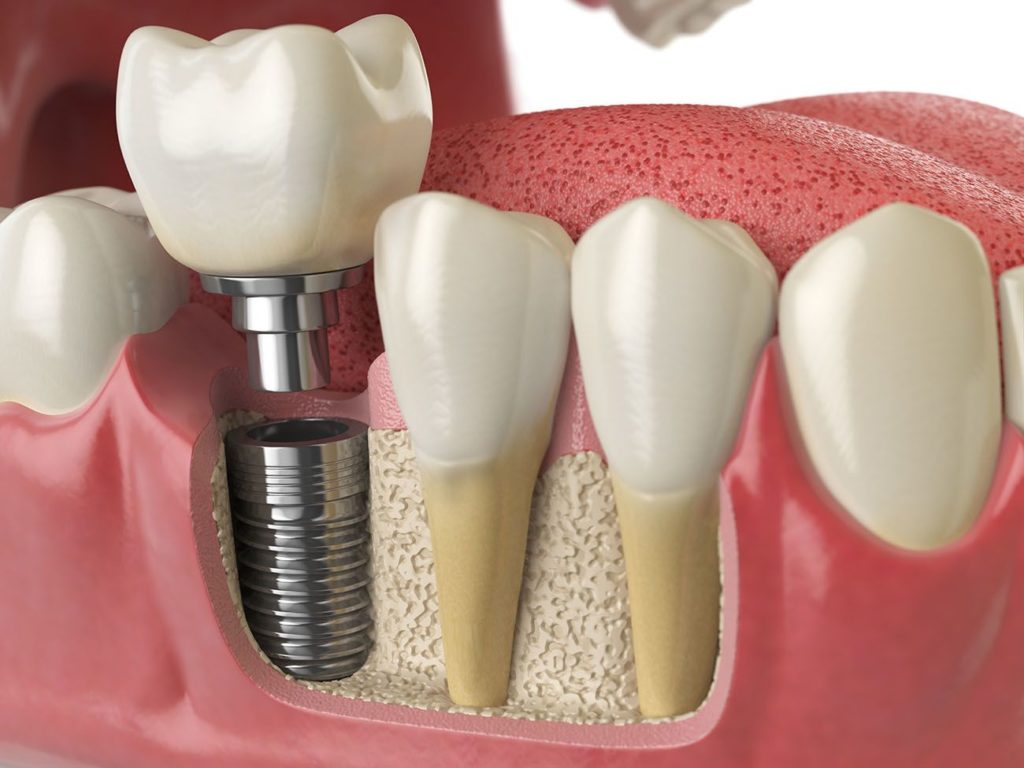If you have recently had a tooth extraction or lost a tooth, you may be a candidate for a dental implant. A dental implant is a permanent solution for a missing tooth. A dentist surgically places a titanium implant as a substitute for your natural tooth root.
The new titanium root will eventually infuse with the bone, making it fully supported. After the root is completely healed, a crown is placed on an abutment to make your smile look as natural and brilliant as possible.
Dental implants are an alternative to removable replacement teeth, such as dentures or semi-permanent bridges. Although the process of getting implants is much longer and more complicated, they look and feel like your natural teeth. Unlike dentures, you can continue to have a normal dental care routine since there are no special care instructions.

Why Get Dental Implants?
Without a replacement for a missing tooth, a patient can experience increasingly problematic side effects. Initially, teeth will begin to shift without the support of the missing tooth. This can drastically affect your bite (how your top and bottom teeth fit together). An altered bite can make it difficult to chew food properly or even speak.
Not only do your teeth need the support of each other, but your jaw needs your teeth for support as well. If you are missing teeth, you can eventually experience bone loss as a result of missing teeth.
Missing teeth and ill-fitting dentures can make it difficult for you to speak or eat. Dental implants look and function like natural teeth, so you are able to move through your daily life with more confidence and comfort.
Dental implants are far more durable than other replacement options. With proper care and attention, your dental implants can last a lifetime.
Another benefit of dental implants is the ease of proper care. You can follow along with a normal dental routine of daily brushing and flossing in order to keep your teeth healthy and clean.
What Are the Risks of Dental Implants?
Dental implant surgery is a relatively common procedure, but there are risks that come with any surgery.
Any time you have an open wound in your mouth, you run the risk of developing an infection. Signs of an infection include fever, inflammation, pain at the surgical site, dizziness, or nausea. Infections should be taken seriously because they can cause death.
You may receive an injury to the surgical site or to the surrounding teeth, tissues, or bone. Due to the drilling in the bone, your jaw bone may fracture, or you one of your surrounding teeth could break.
You could experience numbness or loss of sensation after your procedure. This should be temporary due to swelling, but if the feeling persists, you should talk to your dentist. It could mean that a nerve was damaged during your surgery.
There is a slight possibility that your body will reject the implant. If you are a smoker, have diabetes, or develop an infection, you are at a higher risk of implant failure.
